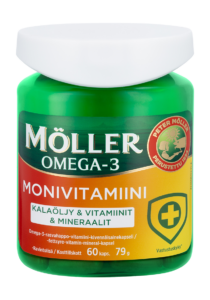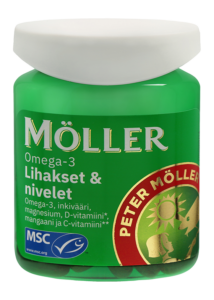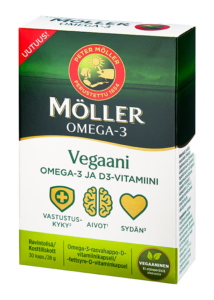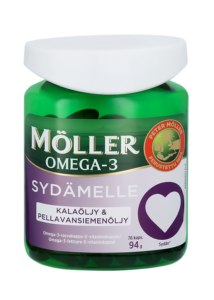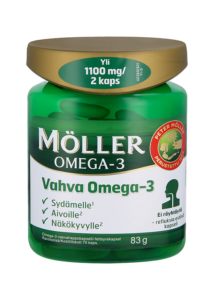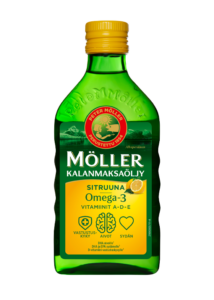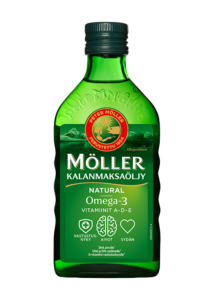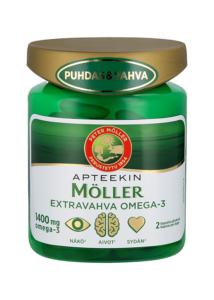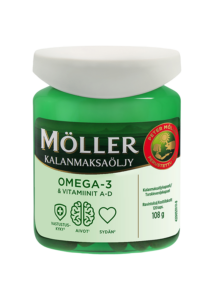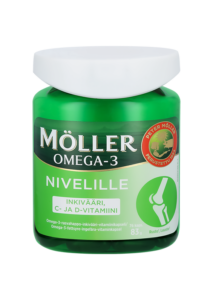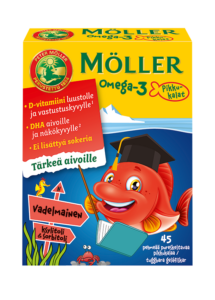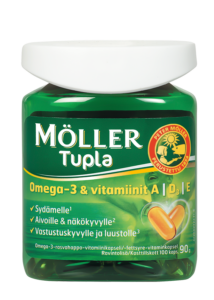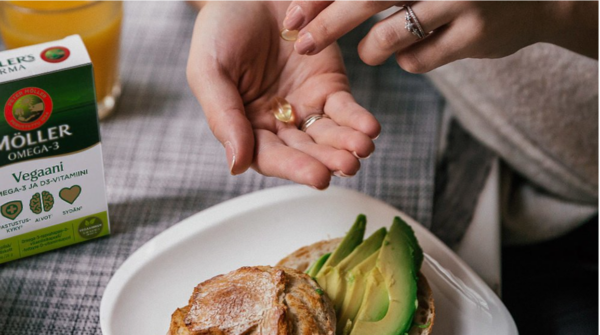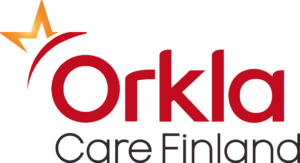Home » Näin pidät huolta aivoterveydestäsi

Aivotutkijan vinkit aivoterveyden ylläpitoon
Unohdatko usein, mitä olit hakemassa tai sanomassa? Ovatko tavarat kateissa, ja keskittyminen vaikeaa? Omasta aivoterveydestä voi huolehtia päivittäin. Aivotutkija Mona Moisalalla on rauhoittavaa kerrottavaa: nämä tuskin ovat varhaisen dementian merkkejä, vaan normaalia työmuistin ylikuormittumista. ”Ruuhkavuosien aikana on monesti liikaa ajateltavaa, muistettavaa ja ratkaistavaa. Siksi onkin tärkeää olla lempeä itselleen ja hyväksyä se, että pallo voi olla välillä hukassa”, Moisala muistuttaa. Moisalan vinkeillä rauhoitat ylikuormittuneita aivoja ja pidät ajatuksen kirkkaana kiireestä huolimatta.
1. Rauhoita 1–2 tuntia työpäivästäsi
Aivoja pommitetaan työpäivän aikana jatkuvalla tietotulvalla ja keskeytyksillä. Rauhoita esimerkiksi aamupäivästä 1–2 tuntia, joiden aikana voit tehdä keskittymistä vaativat työt. Laita puhelin äänettömälle ja estä ilmoitukset uusista sähköpostiviesteistä. Samalla treenaat aivojasi rauhoittumaan ja keskittymään yhteen tehtävään kerralla.
2. Kirjoita tehtävät to do -listalle
Mielessä pyörivät asiat kuormittavat aivoja eniten. Kirjoita kaikki muistettavat asiat ylös paperille, niin ne eivät vie tilaa aivojesi työmuistissa. Hyödynnä myös puhelimen kalenterin muistutuksia, niin aivosi saavat tilaa levähtää.
3. Heittäydy ihanaan harrastukseen
Mielihyvähormoneita tuova tekeminen palauttaa ylikuormittuneita aivoja paremmin kuin sanaristikot. Hemmottele itseäsi työpäivän jälkeen mielekkäällä harrastuksella, jossa voit keskittyä, pääset flow-tilaan ja saat hyvän mielen. Joillakin toimii juoksulenkki, toisilla maalaaminen.
4. Nuku riittävästi
Uni vaikuttaa eniten aivojen hyvinvointiin, sillä nukkuessa aivot palautuvat ja puhdistuvat. Unen tarve vaihtelee yksilöllisesti yleensä 7–9 tunnin välillä. Huolehdi siis, etteivät ylityöt tai Netflix vie tärkeää palautumisaikaa aivoiltasi ja olet ajoissa sängyssä.
5. Huolehdi hyvistä rasvoista
Hyvät rasvat, kuten omega-3, ovat erittäin tärkeitä aivojen toiminnalle. Ne toimivat aivoissa rakennusaineina ja ovat erittäin tärkeitä hermosolujen solukalvoille. Jos ruokavaliossasi ei ole riittävästi rasvaista kalaa tai muita omega-3:n lähteitä, varmista hyvien rasvojen saanti nauttimalla laadukasta kalaöljyä lisäravinteena päivittäin.
Aivoissa, erityisesti otsalohkossa, on runsaasti omega-3-rasvahappo DHA:a. Euroopan elintarviketurvallisuusviranomainen EFSA on määritellyt, että päivittäinen 250 mg:n DHA:n saanti edistää aivotoiminnan pysymistä normaalina.
What is good health?
Do you have a good lifestyle?
Lifestyle simply means the way in which you live. Health and lifestyle go hand in hand. You might feel you have a good lifestyle if you are physically active, eat healthily and generally experience a sense of wellbeing. Conversely, if you want good health you should also have a good lifestyle.
Physical activity is the major contributor to a good lifestyle, but diet, drugs, stress, sleep and social conditions are also play an important role. Being able to use the body properly to avoid injury also affects lifestyle. Physical activity can also prevent depression and help you to recover more quickly from mental illness, both of which obviously affect your lifestyle.
Diet can be a difficult topic for many. Perhaps you eat too much or too little or maybe you find it hard to know what foods to combine to have a balanced diet. It’s also important to eat food that contains important vitamins, minerals and dietary fibre, omega-3 and antioxidants. On top of all this, you also need to get enough energy, protein and the correct fatty acids. The requirement for these nutrients changes throughout your life. When you are older you also have different requirements than children and younger adults. Women also have different requirements than men. Pregnant and breastfeeding mothers also have special requirements.
When you get older, you lose muscle mass and your body requires less energy and therefore less food. You may lead a less active life than you did before, which is why you require less food. However, your need for minerals, vitamins and other nutrients remains the same. Of course, there are plenty of healthy and active older people, but when you reach 70 to 80 years of age, it’s easier to become ill, especially during flu season.
Some steps you can take to improve your lifestyle and health are to:
- eat a healthy and varied diet
- stay active
- watch your weight
- avoid too much alcohol and don’t smoke
- get enough sleep
- think positive
- practise good hygiene
What is good quality of life?
The World Health Organisation (WHO) defines quality of life as a state where the individual can realise their potential, cope with normal stressful situations, work in a rewarding and positive way, and be able to contribute to others and society.
Quality of life is a wide and somewhat diffuse concept that includes joy in, and a desire for, life. These are values that are rather felt than measured, which in turn are based on personal environment and choices. Quality of life doesn’t necessarily depend on being healthy or sick. It’s the moments between worries, sorrows, problems and ailments that matter. For example, if you have a chronic illness, a feeling of mastery can be important when talking about quality of life.
To sum up, quality of life is a combination of health, lifestyle, networks and social support. It’s about experiencing joy, meaning in life, satisfaction, security and a sense of belonging, as well as being able to use your strengths. It’s also about feeling interest in life, coping with everyday situations and a being committed to something or someone. If you have good quality of life, you will be able to cope better with the inevitable stressful situations in life.
Tuotteita
-
Möller Omega-3 Monivitamiini
Omega-3-rasvahappo-vitamiini-kivennäisainekapseli vastustuskyvylle. Möller omega-3 monivitamiini kaps 60 kpl sisältää vitamiineja, kivennäisaineita ja kalaperäisiä DHA- ja EPA -rasvahappoja kokonaisena nieltävässä kapselissa. Kapselin sisältämä C- ja D-vitamiini edistävät immuunijärjestelmän normaalia toimintaa. Valmiste on tarkoitettu aikuisille monipuolisen ja tasapainoisen ruokavalion sekä terveiden elintapojen tueksi. Pakkauksessa on 60 kapselia.
-
Möller Omega-3 Lihakset & nivelet
Möller omega-3 valmiste lihaksille ja nivelille. Sisältää omega-3 rasvahappoja, magnesiumia, mangaania, C- ja D-vitamiineja sekä inkivääriä.
-
Möller Vegaani Omega-3 ja D-vitamiini
-
Möller Sydämelle
-
Möller Vahva Omega-3
-
Möller Kalanmaksaöljy Sitruuna
-
Möller Kalanmaksaöljy
-
Apteekin Möller Extravahva
-
Möller Omega-3 Kalanmaksaöljykapseli
-
Möller Nivelille
-
Möller Omega-3 Pikkukalat
-
Möller Tupla

